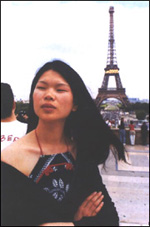This is a bit of a bombshell and perhaps the harshest and most pointed criticism I have ever seen of China in the mainstream media.
Robert L. Bernstein, founding chairman of Human Rights Watch and former chairman of Random House, is speaking today to the World Press Freedom Committee, and the Washington Post has published the speech in advance.
Bernstein assails the media for continuously sugar-coating news about China, turning the “China is changing” line into a cliche, and failing to report the rising number of Chinese citizens killed by the police.
This guy holds no punches.
China, the last big totalitarian government, is brutalizing its own people. It limits and distorts information, keeping them ignorant on many critical subjects, and gives harsh prison terms to those who publish information the government would rather have suppressed.
[….]
Xu Wenli has been out of prison since Dec. 23, 2002. He served 16 years, four of them in solitary confinement, for writing down his thoughts on the need for a more open China. News of these types of convictions and harsh sentences reach Human Rights in China every week. The press and the public need to be reminded that there are many others still in prison for the peaceful expression of their views. Human Rights in China has provided information on well over 2,000 cases — people currently imprisoned for their ideas or beliefs.
And here’s a subject that the press simply has not covered, despite reliable information that is available: Outside every major Chinese city is a virtual “slave” camp. About 2 million to 3 million Chinese citizens live in some 800 of these so-called custody and repatriation camps. Can you imagine a story like this going unreported if such a camp existed outside a major Western city? People are put there for not having proper residence permits, and they are worked hard from early morning until nighttime.
I have taken Human Rights in China’s report on these camps to top editors of numerous publications with no results. Many reporters say they can’t do the story because they can’t get into the camps. But now is the time to insist on access.
I remember how at lunch one day my colleague in Beijing told me about the slave labor camps, and I found it impossible to believe since I never saw it in writing. Now I believe it.
Bernstein compares the media silence in China to a similar phenomenon in Iraq under Saddam, and says that in both cases there is no excuse, that it goes smack against what journalism is supposed to do.
Just about every word Bernstein say is worth citing, in bold, but for economy’s sake here are two more money quotes:
My experience as co-chair of the organization known as Human Rights in China has taught me that the international press in Beijing also has been “managed.” Tyrants throughout history have understood that information is power, and denying information to its own people or disseminating propaganda to the rest of the world have been China’s trademarks for years.
[…]
It has become almost a cliche to talk about the fact that China is changing rapidly, and therefore doesn’t require the kind of pressure that was needed with the Soviet Union. But to the thousands who are locked up in prisons and in mental institutions for their beliefs, that is cold comfort.
Sounds like me talking.
[Updated, 18.50 Singapore time]
Another Update: Conrad chimes in as well, and you think I’m outspoken…. (And I should have patented the phrase “Evil Empire,” which he shamelessly lifts from an earlier post of mine.)

Comments